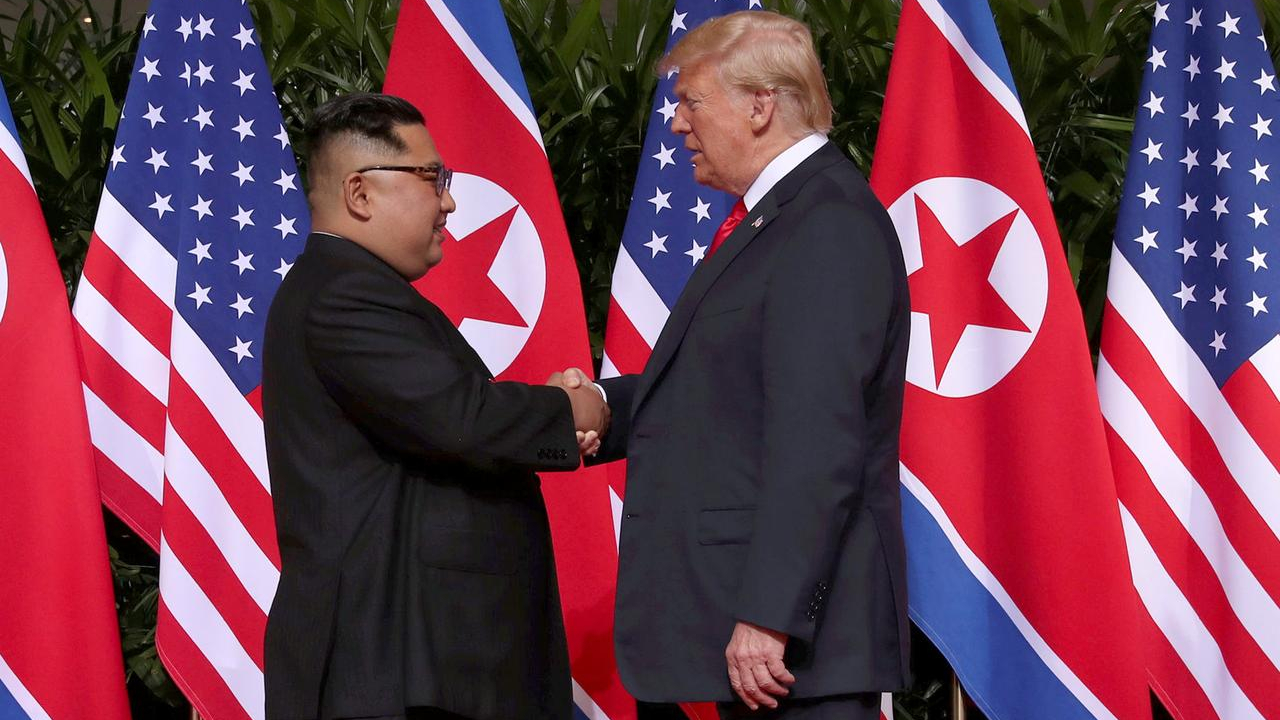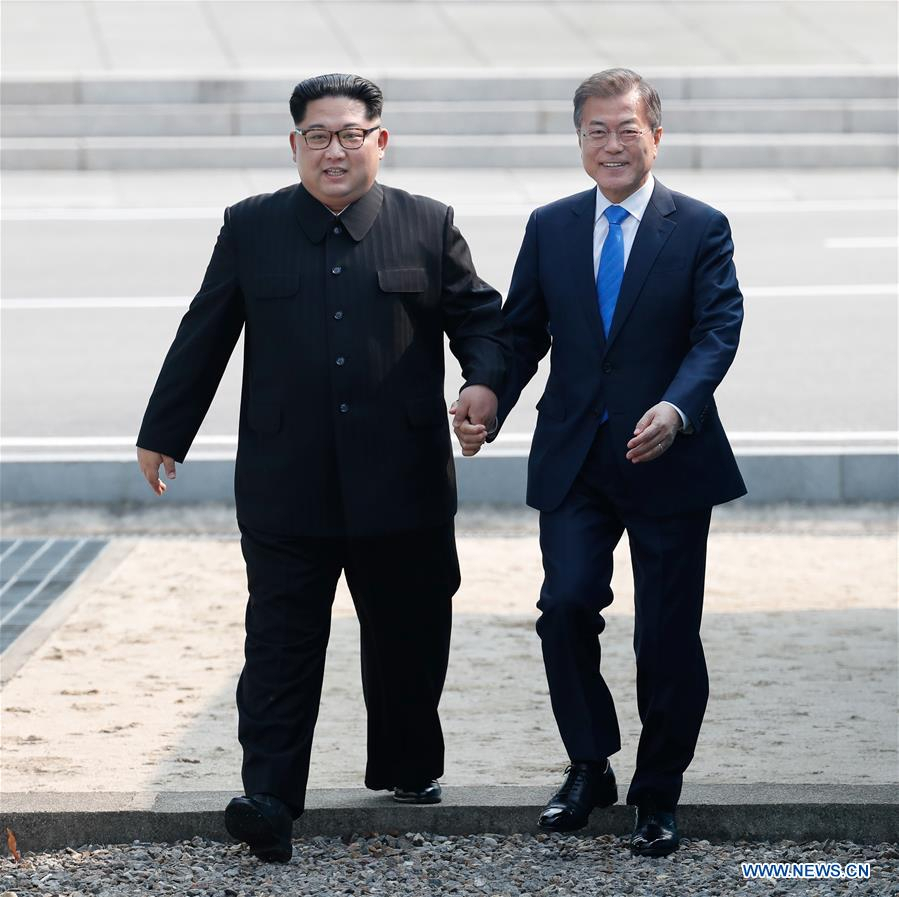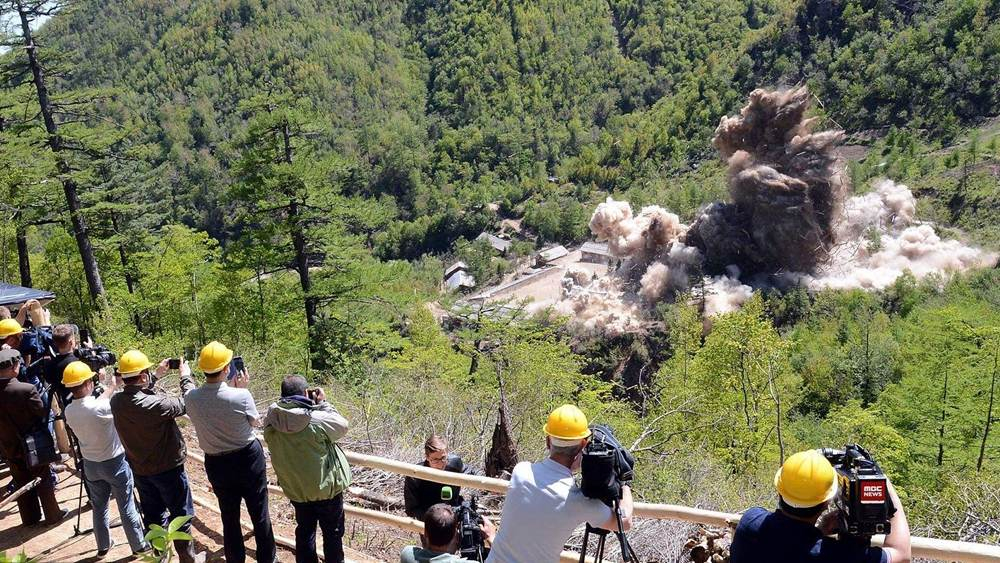

Editor's note: Swaran Singh is a professor of Jawaharlal Nehru University and adjunct senior fellow at Charhar Institute. The article reflects the author's opinions, and not necessarily those of CGTN.
This Monday night, the Democratic People's Republic of Korea (DPRK) Embassy in Singapore informed all its invitees that "due to unforeseen reasons," it was postponing its commemoration of the first anniversary of the summit between U.S. President Donald Trump and DPRK leader Kim Jong Un.
That breakthrough summit was held in Singapore on June 12 of last year and commemoration was to be at the same Capella Hotel by unveiling a plaque followed by a cocktail hosted by DPRK Ambassador Kim Chol Nam at Sentosa hotel. The U.S. Embassy in Singapore had already declined from either hosting or attending any such commemoration.
One year of the U.S.-DPRK nuclear negotiations have been a roller-coaster ride. The astonishing bonhomie of the Trump-Kim summit last June had raised expectations for an early peace treaty finally ending the Korean War and eliminating DPRK nuclear weapons, even removing American troops stationed in the Republic of Korea (ROK). If anything, such showcasing had raised some anxieties in Tokyo, Seoul and Beijing, none of whom were yet ready for such sudden change in U.S.-DPRK ties.

Kim Jong Un walks cross the Military Demarcation Line with Moon Jae-in at the border village of Panmunjom, April 27, 2018. /Xinhua photo
Their second summit in Hanoi in February was equally surprising, but on the flip side. It ended abruptly without the two being able to even issue any joint statement. Most conservative estimates had hoped for DPRK stopping uranium enrichment and plutonium reprocessing at Yongbyon in lieu of limited sanctions relief and modest humanitarian assistance from the U.S. Such expectations suddenly appeared overambitious and misguided.
Trump has since moved to opening new battle fronts against China, Iran, Venezuela, Turkey and India while Kim has been reported to revive his missile tests. President Trump, however, still believes a breakthrough is possible but he remains premised on his trust in coercive sanctions and the lure of foreign direct investments.
As for Kim, the last year saw him holding four meetings with President Xi Jinping, three with President Moon Jae-in, and one with President Trump.
With both Trump and Kim being equally unpredictable, it is not easy to speculate on their next summit. Yet, their failure to do so is bound to further bolster Kim's legitimacy and undermine Trump's "maximum pressure" tactics. Therefore, even without any further dismantling of DPRK's nuclear weapons or missiles, will the third Trump-Kim summit have to be convened just to forbid the influences of the failure?

The Punggye-ri nuclear test site is demolished in front of the international media in Punggye-ri, May 24, 2018. /VCG Photo
There are strong indicators that the two will meet for third time before end of this year. In March, Trump withheld new sanctions on Pyongyang. In May, the DPRK launched short-range missiles and Trump said he did not care as these were only meant to "get attention." Trump supporters continue to raise hype about "Nobel Peace Prize" and talk of electoral gains from a historic foreign policy win that denuclearization of the DPRK can bring. Kim also needs sanctions relief.
The impasse can be broken as soon as during the coming Trump-Moon meeting in late June. This will be the second meeting between Moon with Trump since the Trump-Kim Hanoi summit.
However, the different perspectives and goals of the involved countries can make the situation complicated. President Moon himself believes "denuclearization of the Korean Peninsula," agreed on during the Singapore summit, applies only to Pyongyang. Kim seeks removal of U.S. nuclear umbrella over the ROK as also removal of 28,500 U.S. troops stationed in the country.
To make things more complex, recently the U.S. announced seizure of a DPRK cargo ship for violating international sanctions, which was denounced by Pyongyang as an "unlawful and outrageous act."
The fact that Secretary of State Mike Pompeo, U.S. negotiator with the Kim administration, will accompany President Trump to visit Seoul following Osaka G20 meeting may ignite sparks for keeping this process alive even though the final, fully verified denuclearization of the Korean Peninsula is likely to remain a dream for a long time.
(Cover: U.S. President Donald Trump shakes hands with DPRK leader Kim Jong Un at the Capella Hotel on Sentosa Island in Singapore, June 12, 2018. /Reuters Photo)
(If you want to contribute and have specific expertise, please contact us at opinions@cgtn.com.)

Copyright © 2018 CGTN. Beijing ICP prepared NO.16065310-3
Copyright © 2018 CGTN. Beijing ICP prepared NO.16065310-3